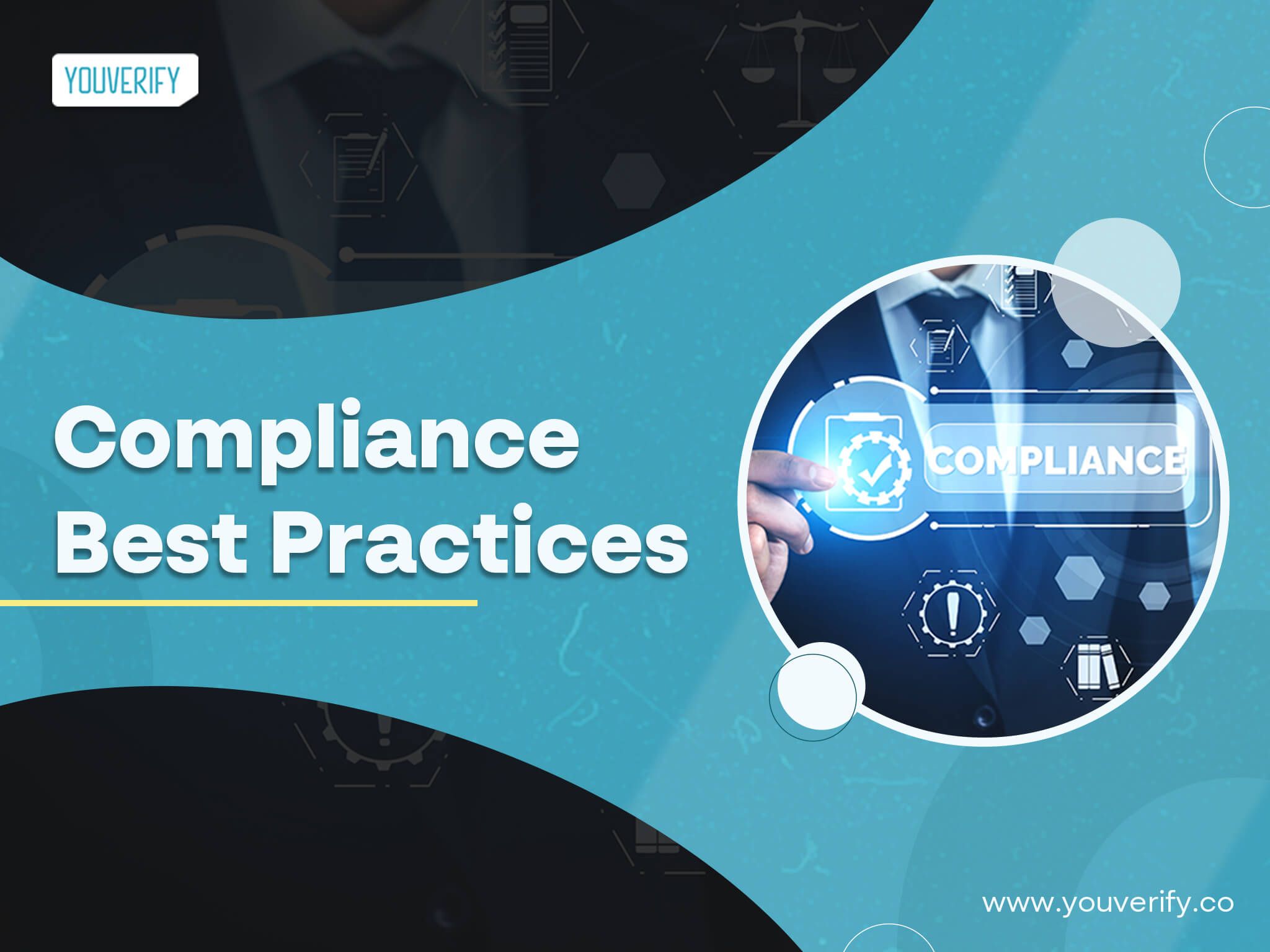Corporate compliance is essential for any business. It ensures operations stay within legal and ethical boundaries.
Effective compliance practices protect companies from legal trouble and build trust with stakeholders. In the modern corporate world, maintaining compliance can be challenging. With evolving regulations and increasing scrutiny, businesses must stay vigilant. Adopting best practices for corporate compliance is crucial.
These practices help organizations navigate complex legal landscapes. They also promote a culture of integrity and accountability. This blog will delve into key strategies for ensuring robust corporate compliance. By following these guidelines, companies can safeguard their reputation and ensure long-term success. Let’s explore the vital steps every business should take to stay compliant and thrive.
Introduction To Corporate Compliance
Corporate compliance means following laws, rules, and policies. It is important for all companies. Following rules keeps a company safe. It helps avoid fines and legal issues. It builds trust with customers and partners.
Compliance is key for business success. It protects the company’s reputation. It also ensures smooth operations. Employees feel safer and more secure. It shows that the company cares about doing things right.
Modern businesses face many rules. They must stay updated on changes. Using technology helps. Software can track and manage compliance tasks. Training employees is also crucial. Everyone should know the rules. Regular checks and audits are necessary. It ensures everything is in order.

Credit: www.law.com
Building A Compliance Program
Establishing a corporate compliance program involves setting clear policies and regular training. Regular audits and reporting systems ensure adherence.
Key Components
A good compliance program has key parts. These parts help keep the company safe. First, clear policies must be set. These policies guide everyone. Second, training programs are needed. Employees learn the rules. They know what to do.
Third, monitoring systems should be in place. These systems check if rules are followed. Fourth, there must be a way to report problems. This keeps the process clear and fair. Lastly, regular reviews are important. They find gaps and fix them.
Initial Steps
Start by assessing risks. Know where problems might come from. After this, set up a task force. This team will guide the process. Next, write a code of conduct. It tells what is right and wrong. Then, begin employee training. Teach them the rules and why they matter.
Developing Policies And Procedures
Clear policies help everyone in the company. They set rules and expectations. This makes the work environment better. Employees know what to do. They feel more secure. Policies should be simple. Use easy words. Avoid long sentences. Review policies often. Update them if needed.
Procedures tell employees how to do tasks. They should be step-by-step guides. Each step must be clear and easy. Break down complex tasks. Use bullet points if needed. This helps in understanding. Train employees on these procedures. Regular training ensures everyone follows the rules.
Training And Education
Employee training programs are very important for corporate compliance. These programs teach employees the rules and policies of the company. They help workers understand their roles and responsibilities. Training programs should be easy to follow and clear. They must cover all key topics. Regular updates are also important. This keeps everyone informed about any changes.
Ongoing education is a must. It ensures employees stay current with new laws and policies. Regular workshops and courses help with this. They provide a chance to learn new skills and knowledge. Continuous learning also promotes a culture of compliance. Everyone should feel responsible for following the rules. This helps the company stay safe and lawful.
Monitoring And Auditing
Regular audits help keep a company in line. They check for compliance. Audits find any problems early. Fix issues fast. This keeps the company safe. Audits should be planned. Use a checklist. This ensures nothing is missed. Audits should be done by trained people. They know what to look for.
Good monitoring techniques are key. Use software to track activities. This helps find unusual actions. Regular checks are important. Monitor emails and files. This stops leaks of data. Keep records of all activities. This helps in audits. Training is also important. Train employees on what to watch for. They are the first line of defense.

Credit: xapien.com
Handling Violations
Ensure corporate compliance by promptly addressing violations. Establish clear protocols for reporting and investigating issues. Maintain transparency and consistency in handling cases to build trust.
Reporting Mechanisms
Clear channels for reporting violations are essential. Employees need to feel safe when they report issues. Anonymity can help. Hotline numbers or online forms can be used. Ensure these tools are easy to access. Train staff on how to use them. Encourage reporting of any concerns.
Investigation Processes
Swift action is important once a report is made. An unbiased team should investigate. Gather all facts carefully. Interview those involved. Keep the process fair and transparent. Take steps to protect witnesses. Ensure a thorough review of all evidence. Conclude investigations with a detailed report.
Maintaining Documentation
Effective documentation ensures compliance and streamlines corporate processes. Keep records up-to-date and well-organized. This fosters transparency and aids in audits.
Record Keeping
Record keeping is vital for corporate compliance. Keep all records organized and up-to-date. Use a system that is easy to access. This helps in tracking and auditing.
Document Management
Document management ensures important files are safe. Use digital tools for better storage and retrieval. Protect documents from loss or damage. Regularly backup all files. This prevents data loss.

Credit: youverify.co
Continuous Improvement
Reviewing your compliance program is essential. It helps find weak spots. Use audits and reports to check if rules are followed. Get feedback from employees too. They know the daily tasks best. This helps keep the program effective.
Once you find issues, act fast. Fixing problems quickly is crucial. Make new rules if needed. Train staff on the changes. Ensure everyone understands the new procedures. Regular updates keep the program strong.
Leveraging Technology
Implementing effective technology solutions ensures companies adhere to regulations efficiently. Tools like compliance software streamline processes, reducing risks and enhancing accuracy.
Compliance Software
Compliance software helps companies follow rules and regulations. It keeps track of important data and alerts when there is a problem. This software can save time and reduce human errors. Many businesses use it to stay compliant. It provides real-time updates and reports. This helps in making informed decisions. Also, it ensures that all employees follow the same standards.
Data Analytics
Data analytics plays a key role in compliance. It helps in identifying trends and patterns. Companies can use this data to predict risks. This allows them to act quickly. Data analytics tools can also monitor employee behavior. This ensures that everyone follows the rules. It provides a clear view of all business operations. Thus, it helps in maintaining compliance.
Global Compliance Considerations
Global markets have different rules. Companies must follow each country’s laws. International regulations can be strict. Some places have unique rules. Others follow common standards. Businesses need to stay updated.
Operating in many countries is hard. Each nation may have different rules. Cross-border challenges include varied tax laws and labor regulations. Currency exchange rates also fluctuate. Language barriers can lead to misunderstandings. Companies should have local experts.
Frequently Asked Questions
What Is Corporate Compliance?
Corporate compliance refers to a company’s adherence to laws, regulations, and internal policies. It ensures ethical practices and minimizes legal risks. Effective compliance programs promote transparency and accountability.
Why Is Corporate Compliance Important?
Corporate compliance is crucial for avoiding legal penalties and reputational damage. It fosters a culture of integrity and trust. Proper compliance ensures that business operations run smoothly and ethically.
How To Implement A Corporate Compliance Program?
To implement a corporate compliance program, assess regulatory requirements, develop policies, and train employees. Regularly monitor and audit compliance. Ensure top management support and maintain open communication channels.
What Are The Key Elements Of Corporate Compliance?
Key elements include a code of conduct, compliance policies, employee training, monitoring, and reporting mechanisms. Effective communication and continuous improvement are also essential.
Conclusion
Strong corporate compliance ensures company integrity and trust. Follow best practices diligently. Encourage open communication within the team. Regularly update policies and train employees. Stay informed about legal changes. Conduct internal audits frequently. Address issues immediately to avoid bigger problems.
Develop a culture of transparency and accountability. Doing so reduces risks and builds a positive reputation. Compliance is an ongoing commitment. Companies thrive when they prioritize it. Always aim for ethical business practices.










